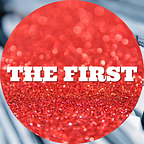Localizing science issues in scholastic journalism
It’s said that all politics is local, so why not science?
This post and others like it are sent out as a free weekly newsletter over on my Twitter via Revue.
Make science local
For most classroom teachers, the COVID-19 pandemic has been an incredibly trying time. But for science teachers, it’s been an opportunity.
Pandemics, epidemics, plagues, variants, drug-resistance, and vaccines were once simply abstract topics to be covered, studied, and tested. But in the past two years, they’ve been brought right into our classrooms.
Why can’t we do the same for science reporting as the scholastic level?
Localization is the taking of a large national or international story and making it into a local story. How will this big event or change impact me?
My high school is hundreds of miles from the coast, so climate change stories that focus on rising sea levels don’t really land with our readers(HS students). Our Science and Technology section editor has his reporters focus on what impacts climate change will have here: more extreme weather and more often extreme weather like droughts and floods. NASA, among others, has some great resources on this.
In practice?
Robots are being used more and more in surgery. That’s a sizable national story. This article from the journal Science Robotics talks about telemedical robots for surgery on arteries in hard to reach places. The robot helps reduce fatigue for the surgeon, increase patient safety, and open up this procedure for many more patients.
The researchers in this study largely work at MIT. Although I might be able to get an interview with one of them, I find getting a local source is often easier.
A quick search of my local medical center turns up this article from 2019: Hershey Medical Center is the first in the region to implement advanced robotic technology for complex spine procedures. There’s a quote from Dr. Robert Harbaugh in the article, and he’s still on staff.
So localize the new national story, to get an opportunity to ask the local expert about this new technology and what technology is available at our local hospital.
This is likely “old hat” for many scholastic news organizations, but is most often applied to politics or trend stories.
Resources
I like to end each issue with some resources. This week I’ve got a couple.
How the Russian Media Use Fox News to Make Its Case
This article from the New York Times’ Stuart Thompson digs into how Fox News is increasingly being used to fuel the Russian propaganda machine.
I’d use this to discuss a variety to topics: propaganda, the Fairness Doctrine, the First Amendment, and is Fox News actually news anymore?
How to write a cover letter for a journalism job or internship
Holly Morris over at NPR put together this handy and fun guide for that awkward to write ogre of application materials: the cover letter. This one is specific to journalism, but easily could be adapted for use in applying to other jobs and internships.
I’d use this to have my Journalism I students apply for a job our school’s news organization: The Broadcaster. I’d also use it as a guide for my upper level students to apply for internships with our local NPR station, TV news orgs, and the local papers.
States Newsroom
This nonprofit organization aims to put journalists in every state house in the nation to ensure that the public knows what is really going on. It’s nonpartisan, so you’ll get the facts of what your lawmakers are up to.
I use my Pennsylvania branch, the excellent Penn-Capital Star, to help my students stay informed, generate story ideas, understand elections, and even have conversations with the reporters and editors online. I’ve chatted with the editor John Micek, and (now ex-)reporter Stephen Caruso about stories they’ve published. Also these would be excellent folks to invite into the classroom — in-person or via Zoom — to talk to my students.
That’s it for this week. Let me know if you found this issue useful or found useful resources you’d like to share!
